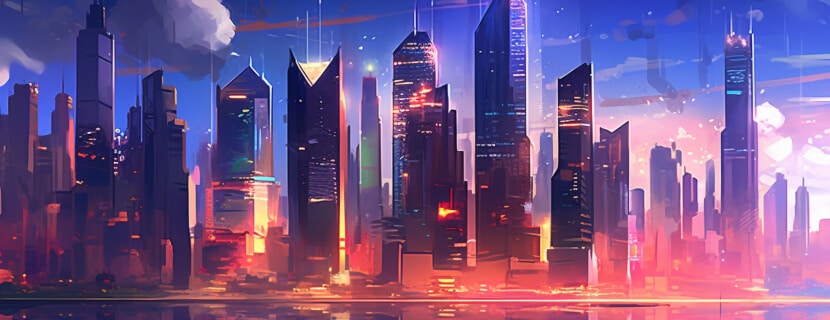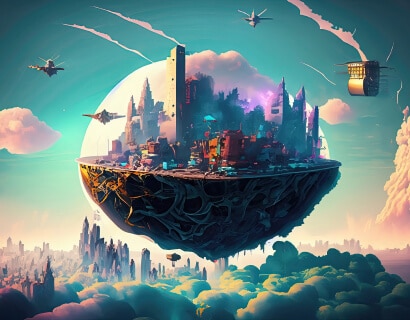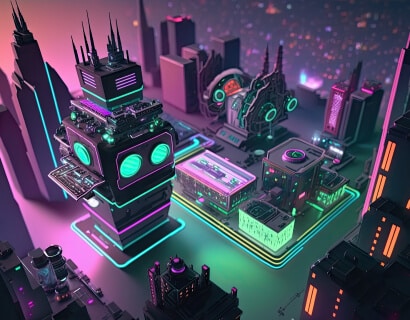The Future of Artificial Intelligence: What to Expect.
Artificial Intelligence (AI) has rapidly evolved from a theoretical concept to a transformative force reshaping industries, society, and daily life. As AI continues to advance, it promises to revolutionize virtually every aspect of human existence, from how we work and communicate to how we solve global challenges. But what does the future hold for AI, and how will it impact us?
1. The Rise of General AI
While today’s AI systems, often referred to as “narrow AI,” are designed to perform specific tasks (e.g., language translation, image recognition, recommendation engines), the future of AI may see the development of “general AI” or “strong AI.” This form of AI would be capable of performing any intellectual task that a human being can do, with the ability to learn and adapt to new, unforeseen situations autonomously.
General AI holds enormous potential in solving complex problems across multiple domains, from science and healthcare to governance and beyond. However, it also brings ethical concerns, particularly around autonomy and control. Ensuring that general AI systems act in the best interest of humanity will be critical as the technology evolves.
2. AI and Automation: The Changing Workforce
One of the most immediate and transformative impacts of AI will be its role in automation. AI has already demonstrated its ability to automate routine tasks in industries like manufacturing, retail, logistics, and finance. But the future of AI is expected to go beyond routine operations, automating complex jobs that require human-like decision-making and creativity.
In the coming years, AI will continue to replace tasks that were traditionally performed by humans, leading to job displacement in some sectors. However, it’s not all doom and gloom. New opportunities will also emerge, particularly in fields like AI development, data science, robotics, and AI ethics. The future of work will likely involve more collaboration between humans and machines, where AI handles repetitive tasks, and humans focus on creativity, innovation, and strategic decision-making.



3. AI in Healthcare: A Revolution in Medicine
AI’s potential to revolutionize healthcare is already being realized, but the future promises even more groundbreaking advancements. AI-powered tools are improving diagnostics, enabling faster detection of diseases like cancer, heart disease, and neurological conditions. Through predictive analytics, AI can identify potential health risks long before they become serious problems.
In the future, AI could provide personalized treatment plans tailored to an individual’s genetic makeup, lifestyle, and environmental factors. AI could also enhance drug discovery processes, making the development of new treatments more efficient and effective. Additionally, AI could play a key role in improving accessibility to healthcare services, particularly in remote or underserved areas through telemedicine and AI-driven diagnostics.
4. AI in Creativity: Revolutionizing Art, Music, and Design
AI’s capabilities in creative fields are rapidly expanding. In the future, AI will become an even more integral part of artistic expression, assisting artists, musicians, and designers in creating works that were once unimaginable. AI algorithms can already generate artwork, compose music, and write poetry, and these abilities will only become more sophisticated over time.
While some may worry that AI could replace human creativity, the future of AI in art is likely to be collaborative. Artists will use AI as a tool to enhance their creative processes, leading to new forms of art that blend human imagination with the power of machine learning. AI could also democratize creativity, allowing individuals without formal training to generate professional-quality artwork, music, or design.
5. Ethical and Societal Implications of AI
As AI continues to advance, the ethical and societal implications of its use will become increasingly important. Issues like data privacy, bias in AI algorithms, and the potential for AI to be used for malicious purposes (e.g., deepfakes, surveillance) will require careful consideration.
In the future, there will likely be a greater emphasis on the responsible development and deployment of AI. Governments, organizations, and tech companies will need to collaborate to create regulations and frameworks that ensure AI systems are ethical, transparent, and accountable. Public dialogue and awareness will also play a key role in shaping how AI is integrated into society.
6. AI in Autonomous Vehicles: The Road Ahead
Self-driving cars are one of the most talked-about applications of AI, and while there has been significant progress in autonomous vehicle technology, there are still many challenges to overcome. The future of AI in transportation could see fully autonomous vehicles becoming the norm, reducing human error, and improving safety on the roads.
AI-powered vehicles will not only revolutionize the way we drive but also how we think about urban planning and mobility. With autonomous vehicles, cities could see reduced traffic congestion, fewer accidents, and improved public transport options. In addition, self-driving trucks could revolutionize the logistics industry by lowering costs and improving delivery efficiency.
7. AI and the Global Economy
The future of AI will have profound implications for the global economy. Countries that lead in AI development are likely to gain a competitive advantage, driving innovation and economic growth. However, the widespread adoption of AI also brings concerns about economic inequality. Nations and companies that fail to invest in AI may fall behind, and the automation of jobs could exacerbate income disparities.
In the future, we may see the rise of AI-driven economies where the focus is on innovation, automation, and data-driven decision-making. Governments and businesses will need to work together to ensure that AI benefits society as a whole, rather than concentrating wealth and power in the hands of a few.
8. AI for Global Challenges: Climate Change, Sustainability, and More
AI has the potential to help solve some of the world’s most pressing challenges, from climate change and resource management to poverty and global health crises. For example, AI-powered systems can help optimize energy consumption, track environmental changes, and develop solutions to reduce carbon emissions.
AI can also play a key role in addressing food security by improving agricultural practices, reducing waste, and optimizing supply chains. In the future, AI could become a vital tool in the fight for sustainability, helping to create a more resilient and equitable world.

